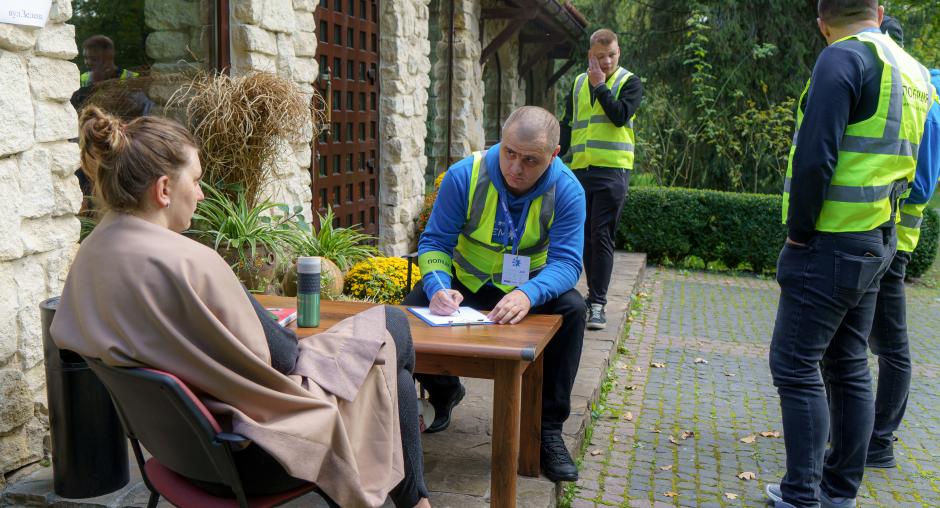OSCE and IOM help Ukrainian officials and experts to build practical skills for handling human trafficking cases

A series of four three-day simulation exercises organized jointly by the OSCE Secretariat Extra-Budgetary Support Programme for Ukraine and IOM Mission in Ukraine in September and October helped officials, experts, and practitioners from 12 regions of Ukraine to enhance their practical skills in investigating cases of trafficking in human beings and assisting survivors of the crime.
The training imitates labour and sexual exploitation scenarios using the methodology developed by the Office of the OSCE Special Representative and Co-ordinator for Combating Trafficking in Human Beings (CTHB). “It is highly rewarding to see that States find the format of live simulation-based training developed by our Office beneficial and actively replicate it in a national context,” says Andrea Salvoni, Acting Co-ordinator, Office of the OSCE Special Representative and Co-ordinator for CTHB, who attended one of the simulation-based training events in Lviv.
These exercises enable participants to practice identification of trafficking survivors, provide necessary assistance with a focus on protecting survivors’ rights and prevention of their re-traumatization. Simulation-based training helps to improve the distribution of responsibilities and competencies of the involved agencies and promote mutual information exchange, while safeguarding confidentiality of those who suffered from the crime.
"Practical training is the only form of education that allows not only to acquire new knowledge, but also to gain new hands-on experience. It is the new experience that forms a new attitude and activates the development of new mechanisms of cooperation in the fight against human trafficking," says Nadiya Ostapchuk, Senior Project Associate of the OSCE Secretariat Extra-Budgetary Support Programme for Ukraine.
The key focus of the effort was to practice co-operation of key stakeholders of National Referral Mechanism that establishes interagency framework to deal with human trafficking. Thus, the organizers invited representatives of the migration police and the prosecutor's office, investigators, labour inspectors, employees of social protection departments, service for children’s affairs, and centres for social and psychological assistance, as well as representatives of social service centres and related non-governmental organizations. In total, 120 officials, law enforcers, and civil society experts took part in four simulation-based training events.
"It is the interaction of a wide range of departments and institutions, as well as civil society agencies, that is key to ensuring an effective response to the problem of human trafficking at the state level," says Anna Karelina, Protection Field Team Leader at the IOM Ukraine.
The Office of the OSCE Special Representative and Co-ordinator for Combating Trafficking in Human Beings first conducted simulation training based on recreating real-life situations in November 2016 in Vicenza (Italy). Since then, the OSCE used this interactive learning method to train anti-trafficking stakeholders in several countries. Ukraine joined the practice of organizing such exercises in 2021.
